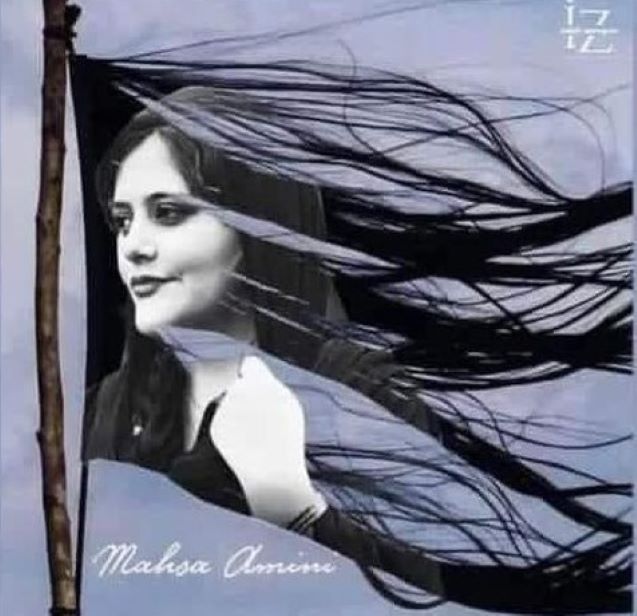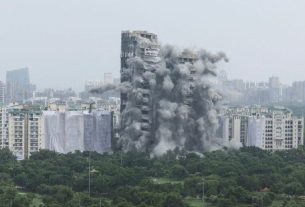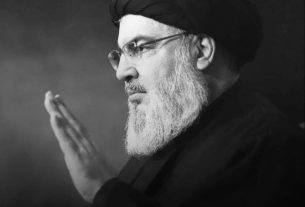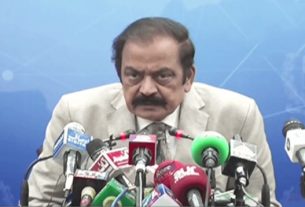Iranian activists called for fresh nationwide protests on Oct. 15 over the death of Mahsa Amini, as US President Joe Biden voiced his support for “the brave women of Iran”.
Outrage over the 22-year-old’s death on September 16, three days after she was arrested by Iran’s notorious morality police, has fuelled the biggest wave of street protests and violence seen in the country for years.
Young women have been on the front line of the protests, shouting anti-government slogans, removing their headscarves and facing off with security forces in the streets.
Despite blocked access to internet services and platforms like Instagram and WhatsApp, activists issued an online appeal for a huge turnout for protests on Saturday under the catchcry “The beginning of the end!”
They have called on people across Iran to show up at spots where the security forces are not present and to chant “Death to the dictator” — a reference to Iran’s supreme leader Ayatollah Ali Khamenei.
“We have to be present in the squares, because the best VPN these days is the street,” they declared, referring to virtual private networks used to skirt internet restrictions.
The protesters drew support from the US president, who said he was “stunned” by the mass demonstrations, now in their fifth week.
“I want you to know that we stand with the citizens, the brave women of Iran,” Biden said late Friday.
“It stunned me what it awakened in Iran. It awakened something that I don’t think will be quieted for a long, long time,” he said.
“Women all over the world are being persecuted in various ways, but they should be able to wear in God’s name what they want to wear,” said Biden.
Iran “has to end the violence against its own citizens simply exercising their fundamental rights,” he added.
At least 108 people have been killed in the Amini protests, and at least 93 more have died in separate clashes in Zahedan, capital of the southeastern province of Sistan-Baluchestan, according to Oslo-based group Iran Human Rights.
The unrest has continued despite what Amnesty International called an “unrelenting brutal crackdown” that included an “all-out attack on child protesters” — leading to the deaths of at least 23 minors.
The bloody crackdown has drawn international condemnation and new sanctions on Iran from Britain, Canada and the United States.
Iran’s supreme leader has accused the country’s enemies, including the United States and Israel, of fomenting the “riots”.
On Friday, Khamenei’s government condemned French President Emmanuel Macron for remarks in which he expressed solidarity with the protests sparked over Amini’s death.
Foreign ministry spokesman Nasser Kanani said Macron’s remarks served to encourage “violent people and lawbreakers”.
He said it was “surprising” that France was condemning Iran’s security forces for dealing with “violent people and rioters” when it was threatening to use force in response to “labour strikes in the oil and gas sector” at home.
“This is clear hypocrisy,” he said.
In response to the call for fresh protests, one of Iran’s main revolutionary bodies, the Islamic Development Coordination Council, has urged people to join a counter-demonstration after evening prayers on Saturday to “express their revolutionary anger against sedition and rioters”.
A call also went out this week for “retirees” of the Islamic Revolutionary Guard Corps to gather on Saturday given “the current sensitive situation”, according to a journalist at the Shargh newspaper.
The security forces have carried out a campaign of mass arrests that has netted young activists, journalists, students and even minors.
Schoolchildren have been arrested inside classrooms and ended up in “psychological centres”, Education Minister Yousef Nouri said this week, quoted by Shargh.
In a rare show of accountability, the Tehran police department said Friday that it would investigate the conduct of an officer following allegations of harassment during the arrest of a woman protesting against Amini’s death.
It came after a video showed a male officer appearing to grope the woman from behind while arresting her before she was eventually allowed to leave.
Some voices of support for the protesters have come from inside the country.
In an open letter published on its front page Thursday, reformist newspaper Etemad called on Iran’s top security official, Ali Shamkhani, to stop arrests being made under “pretences that are sometimes false”.
The Iranian authorities have organised their own rallies attended by women clad in black chadors — garments that cover their heads and bodies.
A bid to show they had the support of famous women unravelled overnight after a photomontage of dozens wearing the hijab disappeared from a Tehran billboard within 24 hours of being erected as it featured some personalities known to oppose the headscarf.__Daily Hurriyet





